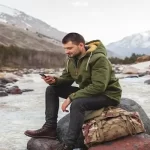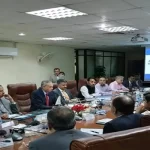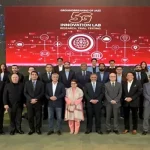
Terms and conditions Welcome Pakistan
Welcome to Pakistan, a country known for its magnificent scenery, vibrant culture, and kind people. It is important that you familiarize yourself with the rules and circumstances associated with the region before setting off on your adventure to this South Asian jewel. Comprehending these terminologies will facilitate your sojourn while also empowering you to honor and value the nation’s distinct customs and laws.
Rules for Entry and Requirements for Visas
You should familiarize yourself with the nuances of entry criteria and visa requirements before you pack your bags for Pakistan. The particular requirements for admission vary based on the reason for your travel as well as your nationality. Pakistan provides a number of visa options, such as business, student, and tourist visas. Selecting the appropriate visa category is essential, as applying for the incorrect one may result in issues.
Furthermore, visa requirements are subject to change, so it’s best to confirm the most recent details with the Pakistani embassy or consulate that is closest to you. A visa on arrival may be available to some passengers, but only to people of specific nations. such as a current passport, passport-sized pictures, and any additional paperwork needed in accordance with your visa category.
Respect and cultural etiquette
A satisfying trip requires an understanding of and acceptance of Pakistani cultural customs and etiquette. Pakistan is home to a rich fabric of traditions that are shaped by a varied range of ethnic groups and historical influences. Respecting regional traditions is essential. When visiting Pakistan, modest clothing is generally encouraged, particularly in the countryside and at places of worship. Women in particular ought to think about covering In Pakistan, politeness and kindness are highly valued.
Saying hello to people is a crucial aspect of social connection, so don’t be afraid to greet them. It is customary to offer and receive with your right hand out of respect since the left hand is typically used for less formal tasks.
Guidelines for Security and Safety
It is crucial to make sure you are safe when visiting Pakistan. Even if you might have a trouble-free trip for the most part, it’s a good idea to be ready for a variety of scenarios. Begin by keeping yourself updated on the state of affairs regarding security in the areas you intend to travel. Examining local news and government travel advisories can yield insightful information. Respecting regional rules and ordinances is essential for staying safe in Pakistan.
Observe all security instructions given by officials, and make sure you have copies of your passport and visa as well as critical contact details on hand in case of emergency. When in public, take care of your possessions and refrain from flaunting your wealth. Make sure you’re safe. It’s a good idea to update friends and family on your whereabouts and itinerary when travelling in Pakistan.
Precautions for Health and Medicines
It is imperative that you give your health first priority while visiting Pakistan. To be sure you have had all required vaccines before your trip, start by speaking with a medical expert. Certain diseases, like polio, typhoid, and hepatitis A, can be avoided with the right vaccinations. Be careful about the safety of the food and water you consume in Pakistan. It is advised to consume bottled water and hot, properly prepared food at respectable institutions to keep food and water safety in mind when visiting Pakistan.
To lower the risk of gastrointestinal problems, it is advised to drink bottled water and eat hot, well-cooked food at reputed restaurants. Carrying a basic medical kit with necessary items like pain relievers, antiseptics, and any personal prescriptions is also a smart idea. Pakistan has healthcare facilities in large cities in case of an emergency; nevertheless, the quality and accessibility of services may differ.
Environmental Accountability
When you go through Pakistan’s breathtaking natural settings, it’s accountability. This entails removing all signs of your visit from delicate locations. Be mindful of protected areas, stick to established routes, and don’t annoy wildlife. Avoid littering and dispose of your trash in an appropriate manner. Encourage local campaigns that advance sustainable tourism and conservation. Take part in local communities in a way that is good for the environment and for you. You help to ensure that these amazing landscapes are preserved for the enjoyment of future generations by engaging in responsible tourism and honoring Pakistan’s natural beauty.
Conclusion
In summary, Pakistan presents a world of wonders just waiting to be discovered, and the secret to an enjoyable and peaceful trip is knowing the terms and circumstances of visiting this unique country. These rules include everything from visa requirements to cultural sensitivity, health, safety, and environmental responsibility. Their goal is to make sure you have a positive and trouble-free experience. Remember that adhering to local customs and laws will improve your relationship with the friendly and hospitable Pakistani people as you set out on your journey through the country’s landscapes, cities, and cultures. Not only will your visit be unforgettable, but it will also help to ensure that this amazing nation is preserved for future generations.
FAQs
Does visiting Pakistan require a visa?
Yes, a visa is usually needed in order to enter Pakistan. Your nationality and the reason for your visit will determine the kind of visa you need and any special requirements. For the most recent information, contact the Pakistani embassy or consulate that is closest to you.
In Pakistan, how can I make sure I’m safe?
Keep a copy of your passport and visa, be aware of local laws and regulations, be vigilant with your things, and stay informed about the security situation in the areas you want to visit. For isolated locations, hiring local guides is recommended.
What safety measures ought I to take?
Make sure you follow food and water safety precautions, get vaccinated as advised by a healthcare provider, and keep a basic medical kit with you.





